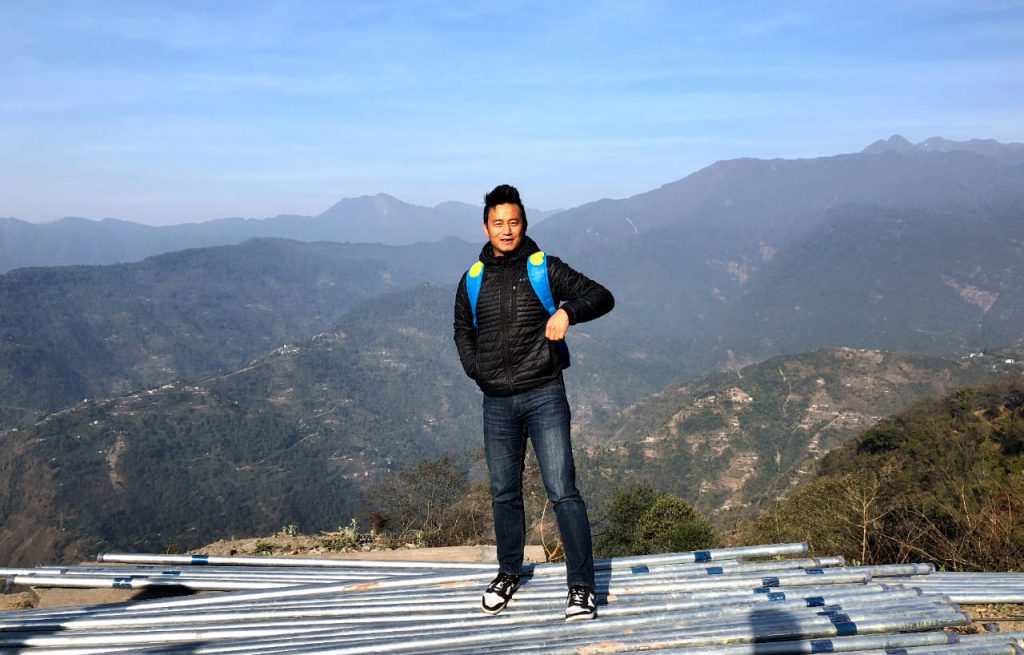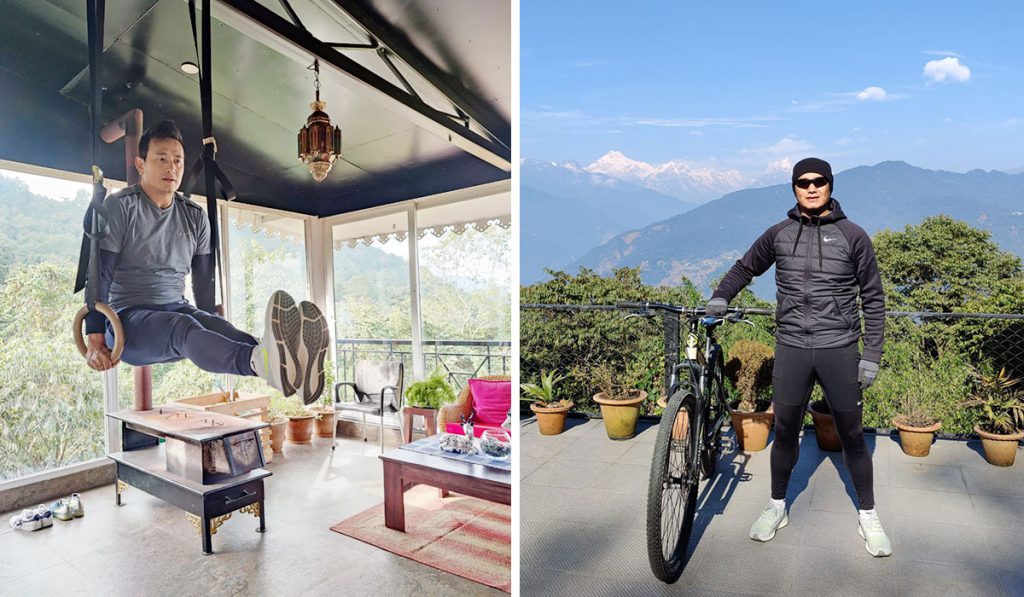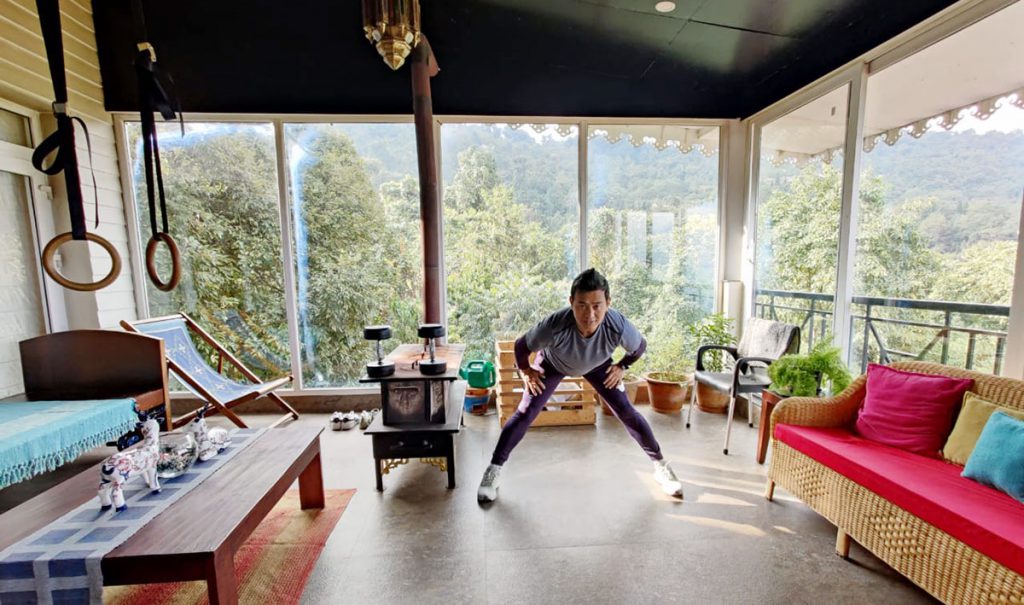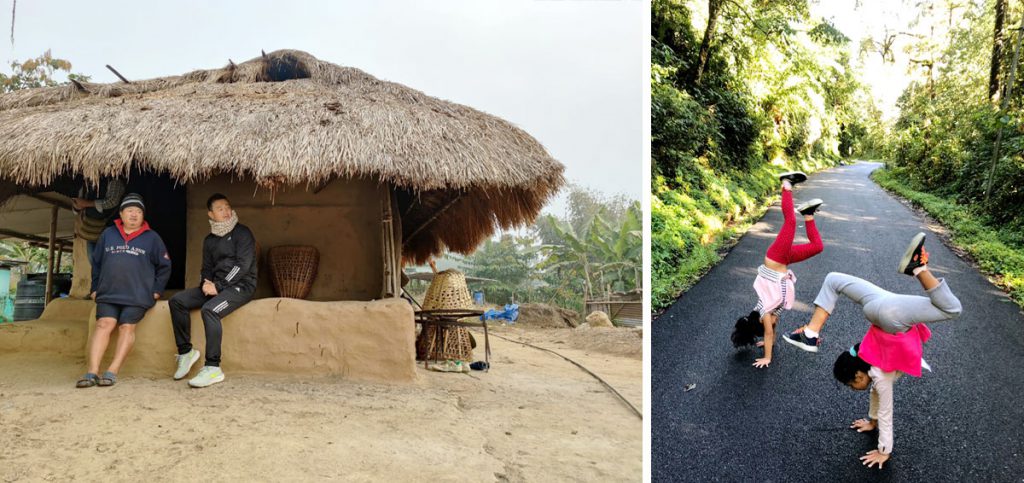
In a country that is deeply prejudiced towards the gentlemen's game of cricket, Northeast India remains ever-under the spell of football. Children playing friendly matches atop hills, trekking miles to retrieve footballs that fall out-of-bounds -- these are memories that are engraved in the minds of many from the region. After the 1996-1997 season of the erstwhile Indian National Football League, where 19-year-old Bhaichung Bhutia played a massive role in the JCT Mills victory - he became a force that would go on to win accolades making him a common name within Indian households and school textbooks. His ground-breaking entry into international football drove football fanatics at home to follow their passions so as to become the next Bhaichung of Indian Football -- Bhaichung, himself, being nicknamed “the Tendulkar of Football.”
A decade after his retirement, the I-League and ISL has brought many others to the forefront - all of whom hope to fill his boots. Bhutia walked so others could run -- while he himself walked toward great things - currently dabbling in the hospitality sector and taking care of his foundation that supports talented young footballers from economically weaker section. Poster boy for all things sporty and fitness, his new venture surely has a health and wellness written all over. This larger-than-life personality, named one of GQ’s best dressed men, encompassed in a humble man, talks to The NE Stories on his fit lifestyle

Home to India's jewels -- Bhaichung Bhutia and the majestic Kanchenjunga, the 3rd highest peak of the world, hilly Sikkim provides apt conditions for trekking and mountaineering. Needless to say, fitness is a part of life for the average Sikkimease but the tides are turning.
Trekking is very common in Sikkim - all of us have grown up walking through hills. Simple tasks, like going to school, going to the market or visiting friends, could count as a trek. However, things are changing in urban areas where everything can now be delivered to your doorstep. People are getting too comfortable and forgetting how to be active - it is a disappointing change.
All set to dip your football-dribbling feet into the hospitality sector, you make sure fitness and wellness finds a way in your business venture...
I will be starting a couple of home stays. The main ones are in the capital city, Gangtok, and in my ancestral village, Tinkitam - both providing two completely different experiences to each other. The property in Gangtok will be geared towards hiking and basic fitness -- for those who want a challenge, there will be opportunities for mountain biking as well. The one in my ancestral home will be all about the village life -- it will have an immersive cultural angle with a focus on other physical activities, including but not limited to, learning how to grow your own organic vegetables.
Local food takes an unchallenged position as your favourite cuisine. Rightly, as “80 per cent diet, 20 per cent exercise” is the commonly accepted magic formula- however, you say that the intensive daily training of an active footballer helped burn a good chunk of the calories you were consuming during your footie days. Throughout your career, physical health had always trumped diet. Now, ten years post-retirement, how you manage to be in top shape with a bigger focus on diet.
Home cooked is the best - the people of Sikkim consume local cheeses including chhurpi, that is made locally at home itself and find its way in most dishes. In addition, plenty of vegetables are grown for consumption - and for the most part of it, the cuisine is healthy. The food culture of Sikkim is unique because the different communities that live here have different tastes. The Sikkimease Bhutias, in particular, use very less oil in cooking. Masala is almost non-existent - most of the flavours come from dried and smoked meat.
Since I stopped playing, I have to maintain the quantity of my food intake - strictly making sure I stick to early dinners. At home, dinnertime is fixed around 6-6:30 in the evening. However, my work schedule often conflicts with dinner timings as a lot of travelling is involved - so I allow some flexibility when on the move."

In a game of restraint, you say "Just don't over eat!” Hard alcohol is also something that you do not indulge in - however, the occasional glass of wine or beer is welcome. Cutting sugar-intake is a top priority – you state that you have reduced your sugar-intake to about 25 per cent of what you would allow yourself during your football career. A diet policy with room to bend the rules - does the same sentiment translate to "just don't over train", in terms of the physical training of a professional sportsperson's career?
"When I was playing, I trained separately - with physique as the entire focus. So, matches composed most of my cardio and I added strength training to it. However, recovery is very important. Rest days or recovery days are essential. Doesn't matter how well one feels, you can't train every day. Recovery is crucial for better performance and to avoid injury."
You aren’t only about football – you like to mix up your fitness regimen with other sports. You had said that one doesn't have to be a professional to play a sport. Under your long list of achievements is a surprising title - the winner of a popular Indian television dance competition. Share your experience dabbling in (and finessing) these other hobbies:
It makes exercising so much more enjoyable to try out other sports -- always keeps one on their toes. Apart from football, I enjoy playing basketball and badminton. Even if someone lacks the fitness and stamina, but wants to get started in their fitness journey - I would say "just dance!"
Choreography was one of my weaknesses when I was involved with dance. I did struggle - but not in terms of fitness and flexibility. Flexibility is something that you can't do much about unless you start at a younger age -- for me; I used to do gymnastics as a kid, so it helped train certain muscles beforehand. "
A new stadium in Sikkim is to be inaugurated under your name, where a “little league” is in the cards. Adding this to the numerous grass-root level initiatives and the various Bhaichung Bhutia Football Schools that have been established in the country, how important is it for you to introduce physical sports to children? Apart from honing new talents, what else do sports provide when introduced at an earlier age?
Sports give kids a whole new way of life that they can begin living from a young age. It is a great teacher for dealing with wins and losses - to remain humble and have a healthy team spirit when you are successful, and never to give up because of any setbacks and loss in the game - or in life. It is not just about the physical or the mental, but about the kind of adult you will grow up to be.

If physical strength, diet and mental strength are the three pillars of strength, you feel diet plays a more significant role than physical strength now, whereas it was the opposite during your football career. You were born to be a team captain- stating that, of the three, you had the least obstacles in overcoming mental challenges. This especially makes sense - considering your success as a player of a game that is often called "as much of a mental, as it is a physical game".
Mentally strong, for me, means "to be cool and composed". The most important thing that will reflect your mental strength is your decision-making and choices -- the game requires you to make quick split-second decisions on the field. In a fraction of a second, you have to make the decision that you must go through with till the end.
What’s the secret behind you turning up looking dapper at every event and appearance (this includes a stint as the showstopper at the Lakme Fashion Week in 2018) and of course being named one of GQ's best dressed men...
Whatever I wear has to be comfortable - but it has to be fashionable. I never put an active effort into looking a certain way, and I don't think I look good in everything I wear. It is commonly known that people from North East India are known to have a sense of style - it comes out naturally!
The health and fitness industry have not been spared by the sway of the Covid-19 Era. While gyms and parks have reopened in places, maintaining social-distancing is still a priority. In light of this, what’s your "just do it" attitude?
Even without Covid-19 restrictions, there are those of us who are uncomfortable with going to gyms. For them, I would say, wear a mask and take your workout outdoors. Working out doesn't necessarily have to take place in a gym. Wake up early in the morning when there are the least number of people outdoors. You need to have a healthy body to fight disease. Disease can come anytime, anywhere - so if you are fit, Covid won't hit!

Story Partner: Media9

